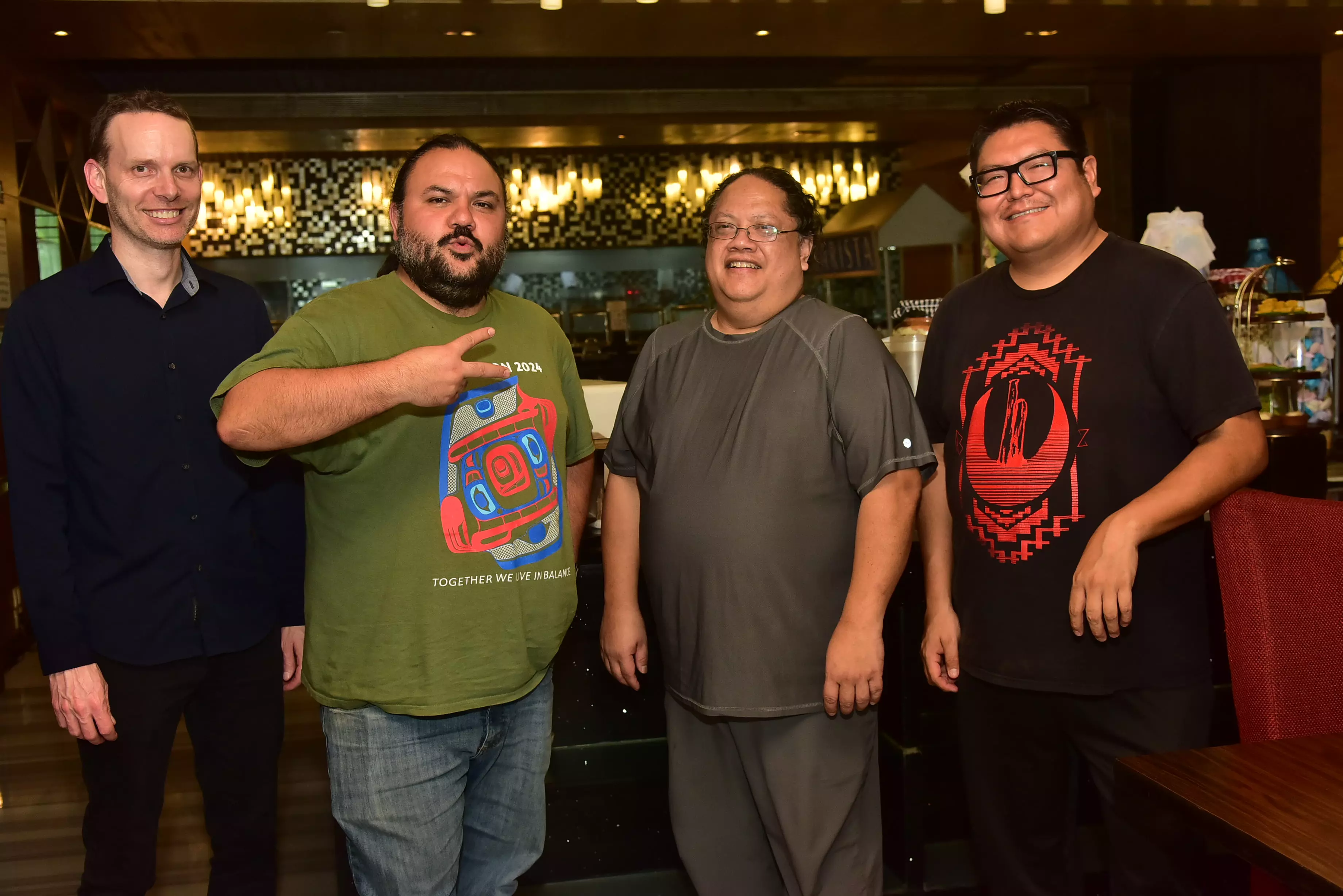Native Jazz Quartet to Perform at Hyderabad's International Jazz Festival
If jazz is anything, it’s music born from the heart

HYDERABAD: One was looking for jazz in Hyderabad. It’s not the kind of city where you’d instinctively look for the genre. But perhaps that’s why it makes sense because Hyderabad has a way of creating a space for everything that speaks to the heart.
If jazz is anything, it’s music born from the heart. That is the heart that one found with the Native Jazz Quartet, an American jazz band set to perform at the International Jazz Festival from 5 pm to 7 pm on December 7 at the Hyderabad Public School.
One comes from Kolkata, a city that carried the weight of colonial history in its streets, and it carried the music that defied it. Jazz often slips into conversations at coffee houses and in discussions about resistance. This time, my conversation didn’t start with music, not directly. It started with changes in the band and Ed Littlefield, the band’s drummer and a Tlingit Alaskan Native, explained, “Fabian, our bass player, has moved on to other projects. He was a co-founder too. Michael Glenn is our new bassist. Rue and I are the founding members now,” he shared.
The "Native" in the Native Jazz Quartet was striking. Asked about it, Ed leaned back and said, “It started with my Tlingit songs, which are native to Alaska. I wanted a way to share them. At first, we thought, “Why not do native melodies?” It’s a vehicle for stories, some hundreds of years old. But it’s always changing and evolving. That’s jazz too, isn’t it?”
Jumping in almost immediately, Ruel Lubag, the pianist, added “Ed brought Tlingit music, and then he asked all of us to contribute something personal. I added Filipino songs, Christian brought Swedish influences, Jason brought his New Orleans upbringing. It forced us to dig deep, to create something new out of these melodies that didn’t follow the conventional patterns of jazz. It wasn’t easy, but it was rewarding.”
Ed started his musical journey with violin as a child in Alaska, but a jazz record in sixth grade changed his life. “I hated it at first,” he laughed, “But after a few weeks of playing it on repeat, something clicked. I didn’t understand it, but I felt it. It just clicked.” Jazz demands a certain openness. It is rarely something one appreciates as a child, but it’s also one of those genres that grows richer as you understand music better.
“I wouldn’t say jazz is above all kinds of music, but yes it is complicated and difficult. But all forms of music are valid and beautiful,” Michael Glenn, the band’s bassist, joined the conversation as he objected to the eulogising of jazz. For him, interestingly, jazz wasn’t something he stumbled upon later.
“In Seattle, where I grew up, jazz is part of the school curriculum. I started in school, fell in love, and never looked back,” he said. He smiled as he mentioned his initial foray into engineering before realising music was where he belonged. Ruel interjected with a humorous “thank God,” but the sentiment carried weight—how many musicians have been stopped by similar dilemmas?
Delbert Anderson's introduction to jazz was more visceral. A Navajo trumpeter from New Mexico, he remembered a school performance where a trombone player turned his music stand around and played, unbound by the sheet. “He said, ‘Music comes from inside, not from the sheet.’ That stayed with me,” Delbert said. Improvisation became his anchor, a way to create without boundaries. “For me, it was always about individuality. Jazz lets you be you.”
But it wasn’t just about their musical journeys. When asked if jazz still carried its roots of rebellion and resistance, the band had varied perspectives. Michael spoke of jazz as a form of protest even when it wasn’t overtly political. “Even when jazz wasn’t explicitly political, creating joyous music in the face of oppression - that’s resistance,” he said.
Delbert, however, lamented the institutionalisation of jazz. “It’s taught so much in schools now that sometimes the meaning gets lost. It was never meant to be boxed in.”
This wasn’t just a story about jazz or a band — it was a reminder of how music defies boundaries. The heart of jazz lies in its ability to connect people and places. It thrives not in familiar places but in unexpected ones. It’s in the improvisation, the shared spaces and the willingness to listen. And isn’t that, after all, what makes music — and cities — come alive?

